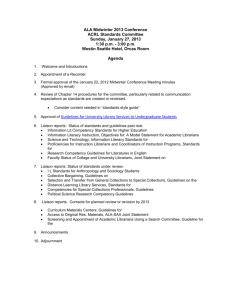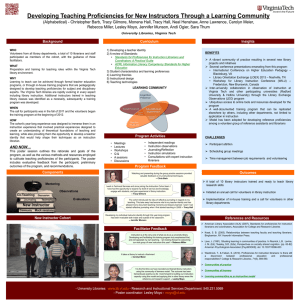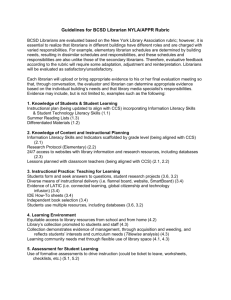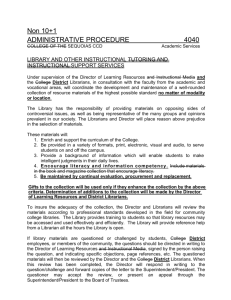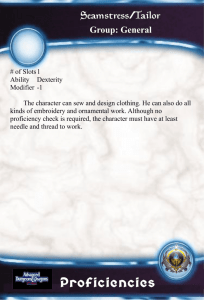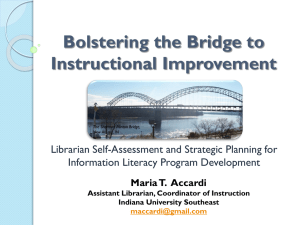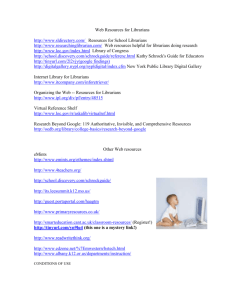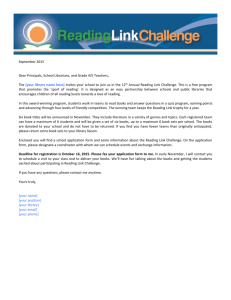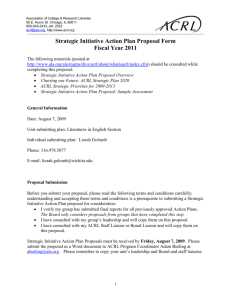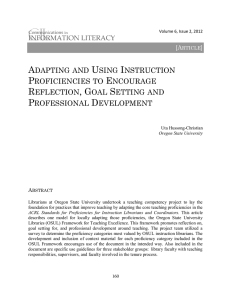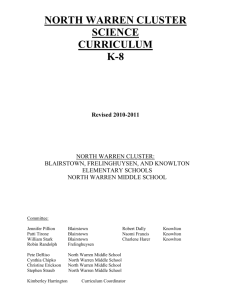Self-Assessment of Library Instruction: ACRL Standards for
advertisement
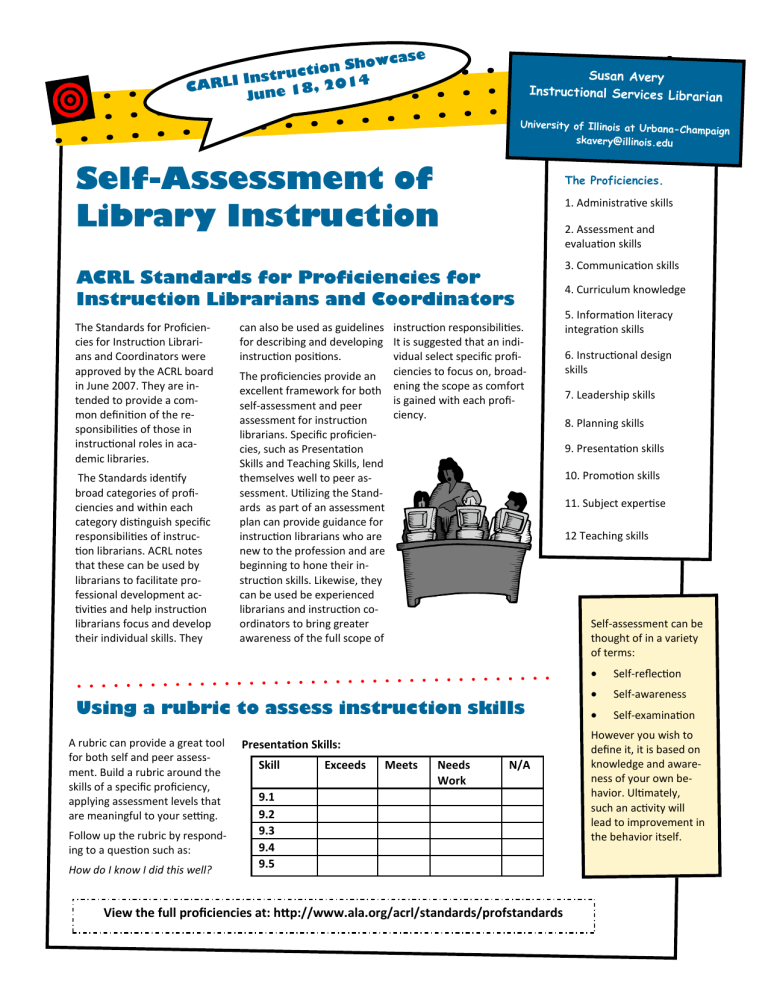
case n Show o i t c u r Inst 4 CARLI 8, 201 June 1 Susan Avery Instructional Services Libraria n University of Illinois at UrbanaChampaign skavery@illinois.edu Self-Assessment of Library Instruction The Proficiencies. 1. Administrative skills 2. Assessment and evaluation skills ACRL Standards for Proficiencies for Instruction Librarians and Coordinators The Standards for Proficiencies for Instruction Librarians and Coordinators were approved by the ACRL board in June 2007. They are intended to provide a common definition of the responsibilities of those in instructional roles in academic libraries. The Standards identify broad categories of proficiencies and within each category distinguish specific responsibilities of instruction librarians. ACRL notes that these can be used by librarians to facilitate professional development activities and help instruction librarians focus and develop their individual skills. They can also be used as guidelines instruction responsibilities. for describing and developing It is suggested that an indiinstruction positions. vidual select specific profiThe proficiencies provide an ciencies to focus on, broadexcellent framework for both ening the scope as comfort is gained with each profiself-assessment and peer ciency. assessment for instruction librarians. Specific proficiencies, such as Presentation Skills and Teaching Skills, lend themselves well to peer assessment. Utilizing the Standards as part of an assessment plan can provide guidance for instruction librarians who are new to the profession and are beginning to hone their instruction skills. Likewise, they can be used be experienced librarians and instruction coordinators to bring greater awareness of the full scope of Follow up the rubric by responding to a question such as: How do I know I did this well? Exceeds Meets 5. Information literacy integration skills 6. Instructional design skills 7. Leadership skills 8. Planning skills 10. Promotion skills 11. Subject expertise 12 Teaching skills Self-assessment can be thought of in a variety of terms: Presentation Skills: Skill 4. Curriculum knowledge 9. Presentation skills Using a rubric to assess instruction skills A rubric can provide a great tool for both self and peer assessment. Build a rubric around the skills of a specific proficiency, applying assessment levels that are meaningful to your setting. 3. Communication skills Needs Work N/A 9.1 9.2 9.3 9.4 9.5 View the full proficiencies at: http://www.ala.org/acrl/standards/profstandards Self-reflection Self-awareness Self-examination However you wish to define it, it is based on knowledge and awareness of your own behavior. Ultimately, such an activity will lead to improvement in the behavior itself.
